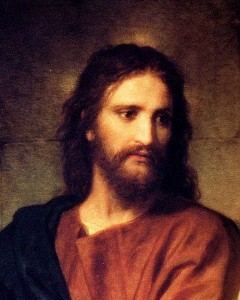Critics of Christianity will often assert that Jesus and his “resurrection” must not have made any significant impact during the first century. After all, they add, outside of a few gospel accounts and letters in the New Testament, nobody really mentions Jesus or Christians. He must have been rather obscure, as was his band of followers. Only after hundreds of years of legendary development did Jesus become considered as the divine Son of God. If he had been a big deal at the time, then more people would have written about him.
To an uninformed listener, that assertion sounds plausible and even reasonable. However, like many such assertions, it collapses under the weight of scrutiny. The truth is that Jesus was written about by many authors shortly after his life and ministry…many more authors than a number of other well-known historical figures. Let’s take a look at the list.
To start, there are nine traditional authors of the New Testament. It is important to remember that the Bible isn’t a single book by a single author. It is a collection of books, written by mostly independent authors over a long period of time. Over time, those books were collected into the canon we have today. So, the nine New Testament authors are, in many respects, independent—and, on the major points, corroborating—sources of information about Jesus.
Add to that total another 20 Christian authors and at least four heretical authors who wrote about Jesus within 150 years of his crucifixion.
Also interesting are these nine non-Christian sources who mention Jesus and Christianity:
- Josephus, Jewish historian (lived 37 – c. 100 A.D.) – Josephus in The Antiquities specifically mentions Jesus. He also mentions Jesus’ brother, James, and how he was sentenced to death. In another passage, Josephus mentions Jesus, the fact that many Greeks and Jews followed him, that he was crucified, that he apparently rose and later appeared to many of his followers, and that his followers called themselves Christians. That second passage does show some signs of having been “enhanced” by later Christian scribes, but the majority of scholars deem the core of it to be authentic.
- Tacitus, Roman historian (lived c. 56 – 117 A.D.) – Tacitus wrote that the emperor Nero persecuted Christians after a fire that destroyed Rome in 64 A.D. Nero, himself, was suspected of ordering the fire, and he needed a scapegoat. Tacitus’ passage provides some details about “Christus” and the origins of Christianity. Most importantly, it shows that within 30 years of Jesus’ death, Christianity had spread from Judea to Rome, and was viewed as a threat by the Roman authorities.
- Pliny the Younger, Roman politician (lived 61 – c. 113 A.D.) – Pliny, in a letter to the Emperor Trajan, describes how he arrests and executes Christians, even though their only crime was to persist in calling themselves Christian.
- Phlegon of Tralles, historian and freed slave of the emperor Hadrian (lived 2nd century) – Phlegon’s writing (now mostly lost, except for fragments) seems to provide corroboration for the mid-day darkness and earthquake that scripture asserts occurred at Jesus’ crucifixion.
- Lucian, Greek satirist (lived c. 125 – after 180 A.D.) – As a worshipper of the Greek gods, Lucian was no friend of Christianity. Nevertheless, he felt the need to defend against it, so it must have been a big deal at that time.
- Celsus, Greek philosopher (lived 2nd century) – Like Lucian, Celsus was anti-Christian. Celsus is interesting because he does not deny that Jesus performed miracles. Rather, he attributes those miracles to “sorcery.”
- Thallus, Greek historian (lived 1st century) – Thallus also made reference to the mid-day darkness, mentioned above. His work has been lost, but he was quoted by Julius Africanus in the 3rd century. Thallus attempted to posit a natural explanation for the widespread darkness, rather unconvincingly, according to Julius Africanus.
- Suetonius, Roman historian (lived c. 69 – after 122 A.D.) – Suetonius seems to mention Jesus when he describes Jews making disturbances in Rome at the instigation of “Chrestus.” Some scholars believe that “Chrestus” is a reference to Christ, but others aren’t so sure. This mention is questionable.
- Mara bar Serapion, Syrian philosopher and prisoner (lived 2nd century?) – In a letter to his son, this author does not mention Jesus by name, but seems to describe him when discussing a wise King of the Jews that was rejected and executed. While this could be a mention of Jesus, it isn’t terribly useful…but it is curious.
All told, about 42 written sources mention Jesus within 150 years of his crucifixion. Compare that to such titans of history as Julius Caesar (5 sources, including Caesar himself) and the Roman emperor Tiberius, who was leader of Rome at the time of Jesus’s execution (10 sources).
The number of sources related to Jesus is even more impressive when one considers that the vast majority of writings from that time have perished. It’s likely that many, many more sources existed at one time.
If we were to totally toss out the Christian writings, we would still have enough corroborating sources to tell us that:
- Jesus was a Jewish teacher in the first century
- Many believed that he performed miracles
- Many believed that he was a Savior or Messiah
- He was rejected by Jewish authorities and handed over to the Roman authorities
- He died by crucifixion under the Roman governor, Pontius Pilate
- His followers believed that he rose from the dead and appeared to them and to others
- Christianity spread very rapidly throughout the Roman empire
- Many worshipped Jesus as God
The fact is this: Jesus’ life and teachings are better attested historically that that of any other religious figure.

